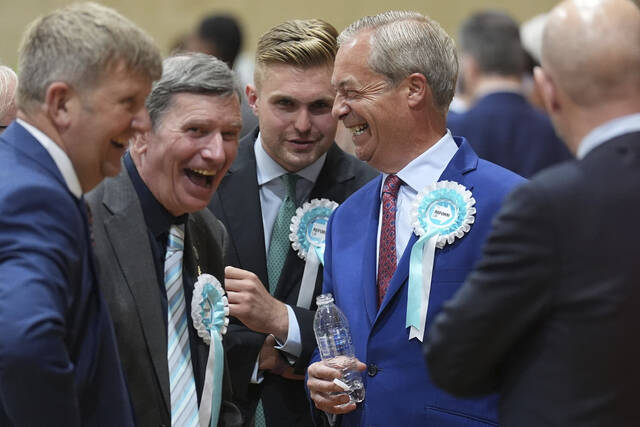As America ponders its political future, the dynamics of politics in Europe offer U.S. lawmakers interesting food for thought — the change there isn’t necessarily about a movement to political extremes but a different kind of shift.
While America has a very real fascination with the Old World, observing but not reflecting hampers opportunities for growth. The United States is stuck in a reality that for many across the pond seems arcane: It has one of the oldest constitutions alive, one that, much like the nation’s presidential candidates, is in desperate need of updating.
Great Britain has certainly just witnessed an update, with many commenting that it has bucked the trend with its shift left. Upon returning to the United Kingdom for the recent election, I saw that the sentiment was less about political ideology and more about discontent over failed promises — failures that saw new parties on the right, such as Nigel Farage’s Reform U.K., pick up a 14% share of the total votes cast, with Labour, politically now left of center, taking 34%.
Political ideology might mean a lot to a select few, but it fails to resonate with a public that is crying out for a different way of governing — one that is about making sure that things run properly and actually happen, rather than succumbing to filibusters, political machinations and outright lies.
Understanding the nuances of policies is less of interest to voters coping with everyday life under any given administration. For all that we can hear that the U.S. economy is doing well, life still feels more expensive, with fewer people we know getting the jobs they seek.
It is clear voters across the West are calling out for an antidote following lockdowns, economic strife and wars. Political parties that are new or have been out of power for a generation, offer up the opportunity for renewal, presenting a tantalizing vision of a better future.
In France, it is discontent that has similarly driven voters away from President Emmanuel Macron’s party — not toward the right, as the second round of elections demonstrated but, as in Britain, a shift left. Having promised a new way in 2017, Macron’s claims of a politics for the people have been anything but, using executive powers to force through pension reforms last year.
While many claim that democracies are sliding toward right-wing populism, the past few weeks have demonstrated that change is a greater priority for voters. Shifts have in fact gone both ways — right and left — yet what is common is that voters have decided to go elsewhere.
Arguably, this was what brought Donald Trump to power as president in 2016 and led to Boris Johnson’s resounding 2019 victory in the U.K. and Giorgia Meloni’s win in Italy in 2022. While all offered conservative agendas, they provoked a break with past leaders, even from within their own parties.
Now voters in Europe are showing us that a break from the past doesn’t have to be about a shift to the extreme but more a venturing toward the center — a hung parliament in France and a center-left government in the U.K. — toward a government proposed by grown-ups, not frustrated egos yearning for the spotlight.
The same old version of politics just doesn’t work. People are weary of past narratives and want to find new ways to rediscover trust in their elected officials.








